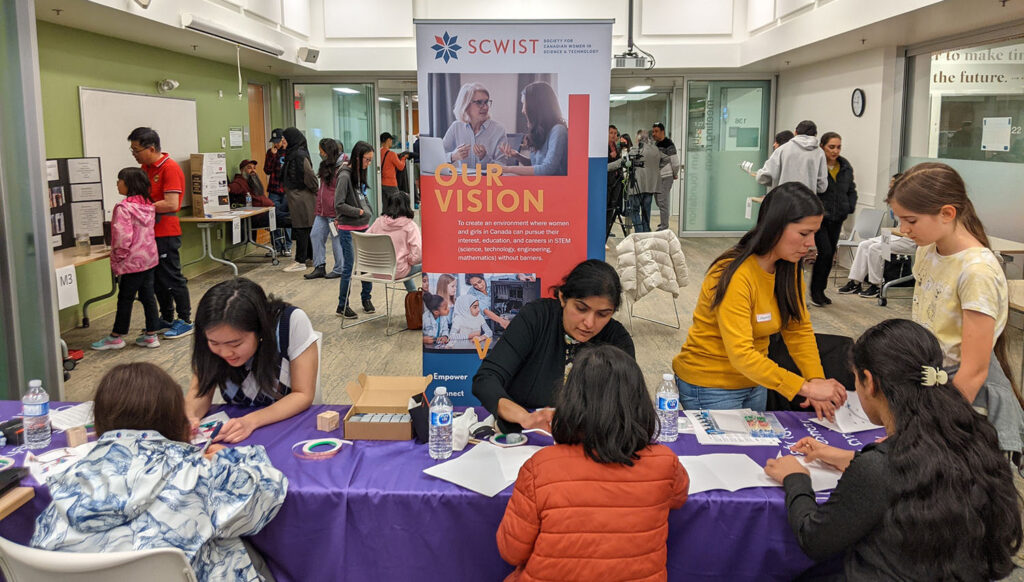By Sharon Aschaiek
More students in remote, rural, and Indigenous communities in Canada will have opportunities to become proficient in science, technology, engineering, and math (STEM), thanks to the Drax Foundation.
In 2023, Drax, a British power generation firm, donated almost $250,000 to support four organizations that make STEM education more accessible, in alignment with the firm’s objective of advancing positive socioeconomic change.
Diane Smit, a regional manager with Scientists in School, a charity that conducts STEM enrichment workshops for students across Canada, says a Drax gift funded hundreds of workshops for roughly 3,500 students.
“Our mission is to engage all children and youth across Canada in [scientific pursuits],” says Smit. “When we provide exposure to STEM engagement, young people start to see a STEM career as a possibility.”
Scientists in School conducts workshops where scientists, engineers, and technologists lead hands-on investigations into energy, chemistry, biology, and many other topics that align with curriculum requirements. In the 2022–2023 school year, says Smit, the organization held more than 10,000 workshops, of which approximately one in five took place in small or rural communities.

Courtesy of Drax Foundation
Twenty per cent of the workshops were also delivered free to promote social equity. Compared to urban schools, Smit notes, those in remote, rural, and Indigenous areas are farther away from STEM learning sites like science centres and museums, and typically have smaller budgets, which impedes their ability to access materials and experts. As a result, students at these schools have fewer chances to gain opportunities that are vital to many career paths.
“We hear all the time from schools in remote communities that they need STEM support,” says Smit. “Whether or not [students] pursue STEM careers, being able to look at the world with a sense of discovery and to engage in critical thinking are valuable skills.”
Drax’s gifts also included donations to the Exploration Place Museum and Science Centre, a non-profit organization that runs free school initiatives in northern British Columbia, and Non-Profit Connected North, which delivers virtual learning experiences to Indigenous students. Drax donated almost $100,000 to the Society for Canadian Women in Science and Technology, allowing it to engage more women and girls in its STEM workshops, conferences, mentoring, and scholarships.
Beyond philanthropy, Drax offers webinars and tours of its power station to engage participants in in-depth explorations of sustainability practices. A notable sustainability initiative is Drax’s use of biomass domes that hold 80,000 tonnes of wood pellets, a form of sustainable fuel that contributes to renewable electricity at the station. The company also does significant work towards reducing global emissions and temperature increases with its Bioenergy Carbon Capture and Storage initiative, which captures CO2 and stores it underground for thousands of years.
With groups like Drax supporting STEM education and sustainable practices, the energy sector appears to have a brighter future ahead—perhaps to be led by a new generation with science and sustainability at the forefront of their minds.

